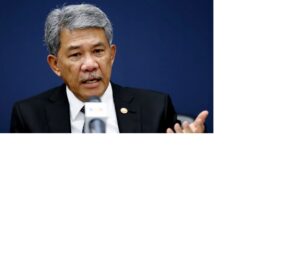Credit: James Shwe
Myanmar’s conflict has now hardened into a grinding stalemate. Despite battlefield losses and domestic discontent, the junta remains entrenched—propped up by powerful external backers who continue to fuel its war machine. The message is clear: there will be no quick or easy end. The world must act decisively, not only to ease human suffering but also to stop those who empower tyranny.
From this analysis, several urgent actions are evident:
• Fully fund humanitarian aid and ensure safe, unhindered access across conflict lines to save lives now.
• Enforce a genuine arms and aviation-fuel embargo, and strengthen targeted sanctions to halt attacks on civilians.
• Impose secondary sanctions on foreign enablers supplying weapons, drones, finance, or technology to the junta—particularly those linked to Chinese and Russian state or commercial networks.
• Sever the junta’s rare-earth and energy lifelines by blocking purchases and escrowing payments from extractive and cross-border energy projects that provide it with hard currency.
• Ban lobbying and PR for the junta in democratic countries, and penalize firms that whitewash its crimes or facilitate international legitimacy.
• Reject sham elections and coordinate diplomatic efforts to deny recognition until there are credible protections for civilians and genuine conditions for dialogue.
As Joshua Kurlantzick of the Council on Foreign Relations notes, “Myanmar’s junta forces are gaining back ground, presaging a long-term quagmire.” Despite years of resistance, the regime’s gradual resurgence and the international community’s divided stance threaten to prolong suffering indefinitely.
In the years since the Myanmar military launched a coup in February 2021, the junta clearly expected to quickly crush all opposition. At least at first, it had superior resources and did not face a unified coalition counterforce.
Yet the regime’s forces had until recently consistently lost ground, economic resources, and hearts and minds to the loose coalition of opposition forces. Junta forces, which rely on conscription of young men, have been beaten by guerilla forces but they also have lost open, pitched battles, and have suffered massive defections among both low-ranking soldiers and some officers. Today, the junta controls only about 20 percent of the country’s land, while opposition forces control about double that amount of land.
Read more: Joshua Kurlantzick, CFR Blog






